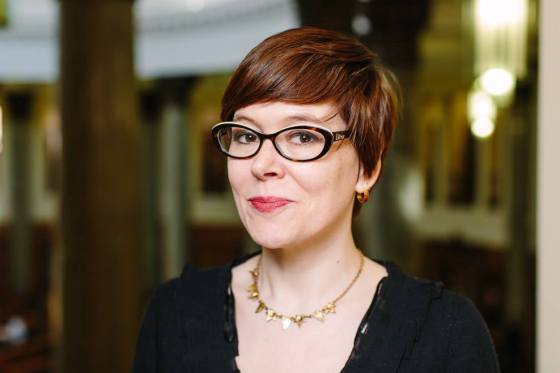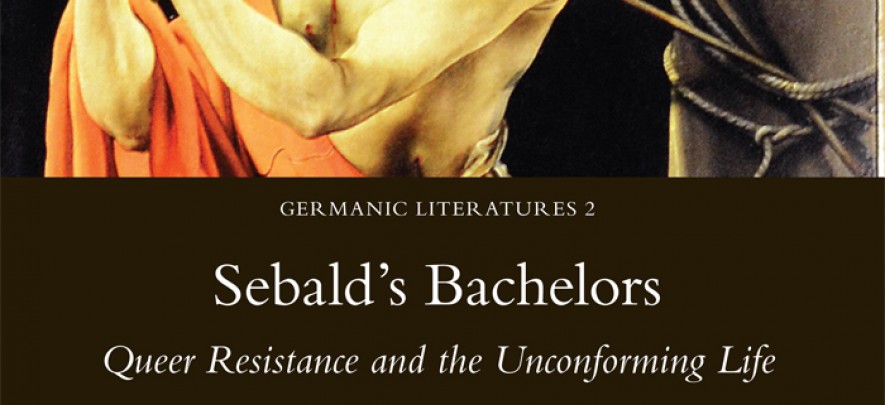 I am a native of Dublin, and have been an incorrigible addict of Big Books since I learned to read. I took my undergraduate degree in German and Russian at Trinity College Dublin, spending a year as a DAAD undergraduate scholar at the Humboldt university in Berlin in the decadent 1990s. After I graduated from TCD, I spent a stint working as a technical writer in the dot.com industry in Dublin, San Francisco and then for a year in Jena. While in the idyllic Romantic town of Jena, I found myself spending my free time, between writing user manuals and poring over software architecture diagrams, in retracing the steps of Goethe and Schiller in Weimar and Jena, reading Foucault and Kafka and Jelinek, and generally yearning for the world of German literature and philosophy.
I am a native of Dublin, and have been an incorrigible addict of Big Books since I learned to read. I took my undergraduate degree in German and Russian at Trinity College Dublin, spending a year as a DAAD undergraduate scholar at the Humboldt university in Berlin in the decadent 1990s. After I graduated from TCD, I spent a stint working as a technical writer in the dot.com industry in Dublin, San Francisco and then for a year in Jena. While in the idyllic Romantic town of Jena, I found myself spending my free time, between writing user manuals and poring over software architecture diagrams, in retracing the steps of Goethe and Schiller in Weimar and Jena, reading Foucault and Kafka and Jelinek, and generally yearning for the world of German literature and philosophy.
The lure of books proved so strong that I returned to academia and pursued a master’s degree in Modern German Thought at the University of Glasgow, completed in 2001. After this, I returned to Trinity College, Dublin, where I was awarded an IRCHSS fellowship to write a PhD comparing W. G. Sebald’s novels with works by his contemporaries Botho Strauß and Peter Handke, completed in 2007.
As well as teaching in Trinity as a postgraduate tutor, I have lectured at the Universities of Ulster (2007) and Liverpool (2008-9), teaching everything from ab initio German language to post-Holocaust German film, with plenty of German translation and literature in between. I took up my current post at the University of Leeds in 2009, where I am an Associate Professor, dividing my time between teaching, research and my role as Director of Student Education for the School of Languages, Cultures and Societies.
In 2013-4, I was an AHRC Early Career Fellow, pursuing research on ‘ Holocaust Literature in German: Canon, Witness, Remediation’. This examines the ‘cultural field’ of Holocaust testimony in German-language literature, which uses the theories of Pierre Bourdieu to examine the mechanisms that have excluded many literary witnesses to the Holocaust from the German cultural sphere on grounds of their exile status, gender, political affiliation or poetic practice.
In connection with this project, I have published a volume in collaboration with Dr. Lynn Wolff of the University of Stuttgart, entitled Witnessing, Memory, Poetics: H. G. Adler and W. G. Sebald (Rochester: Camden House, 2014).
I am a co-investigator on a major AHRC Care for the Future grant, ‘Performing the Jewish Archive‘, a project aiming to recover and re-engage with lost or neglected Jewish artworks, and to stimulate the creation of new works to re-animate existing archival repositories. I am also also a co-investigator on a British Academy-funded project, ‘Contemporary Literature from Germany and South Africa: Critiquing the Narrativization of Trauma as Nation-building‘, linking academics from South Africa and Leeds. It builds on a previousBritish Academy-funded International Networking project, led by Prof. Bill Niven of Nottingham Trent University and also including Prof. Stuart Taberner of Leeds, linking researchers in the UK and South Africa working on trauma, reconciliation and reparation in the aftermath of German Nazism and Afrikaner nationalism. We also collaborate with the South African Holocaust and Genocide foundation, and hold regular public evens there.
My monograph, Sebald’s Bachelors: Queer Resistance and the Unconforming Life, appeared with Legenda in June 2013. This monograph is the first book to look at the overarching theme of sexuality in Sebald’s work, and to analyse the key complex of masculine identity. I mobilise contemporary queer theory (Ahmed, Edelman, Snedicker) to read Sebald ‘against the grain’, demonstrating the importance of queer sexuality as a site of resistance. The book demonstrates that Sebald’s literature draws on Deleuze and Guattari’s theories of the centrality of the bachelor figure in minor literatures to link queer bachelorhood to literary resistance and erotic redemption. It further shows that, while Sebald configures queer sexuality as political resistance to colonialism, his literature also becomes embroiled in clichés of the sexualised Orient.
You can also follow me on academia.edu here: http://leeds.academia.edu/HelenFinch, or on Twitter at @HelenCFinch, or like my Facebook page here: http://www.facebook.com/DrHelenFinch.

Pingback: Walking and Writing…Transformative Power | The Broken Fork
I’m contacting you from Chicago where your Manchester photos (synagogues, soup kitchen for the Jewish poor, etc.) meant more to my 94 year old mother than I can express. If other similar resources currently exist please let me know.
Many thanks.